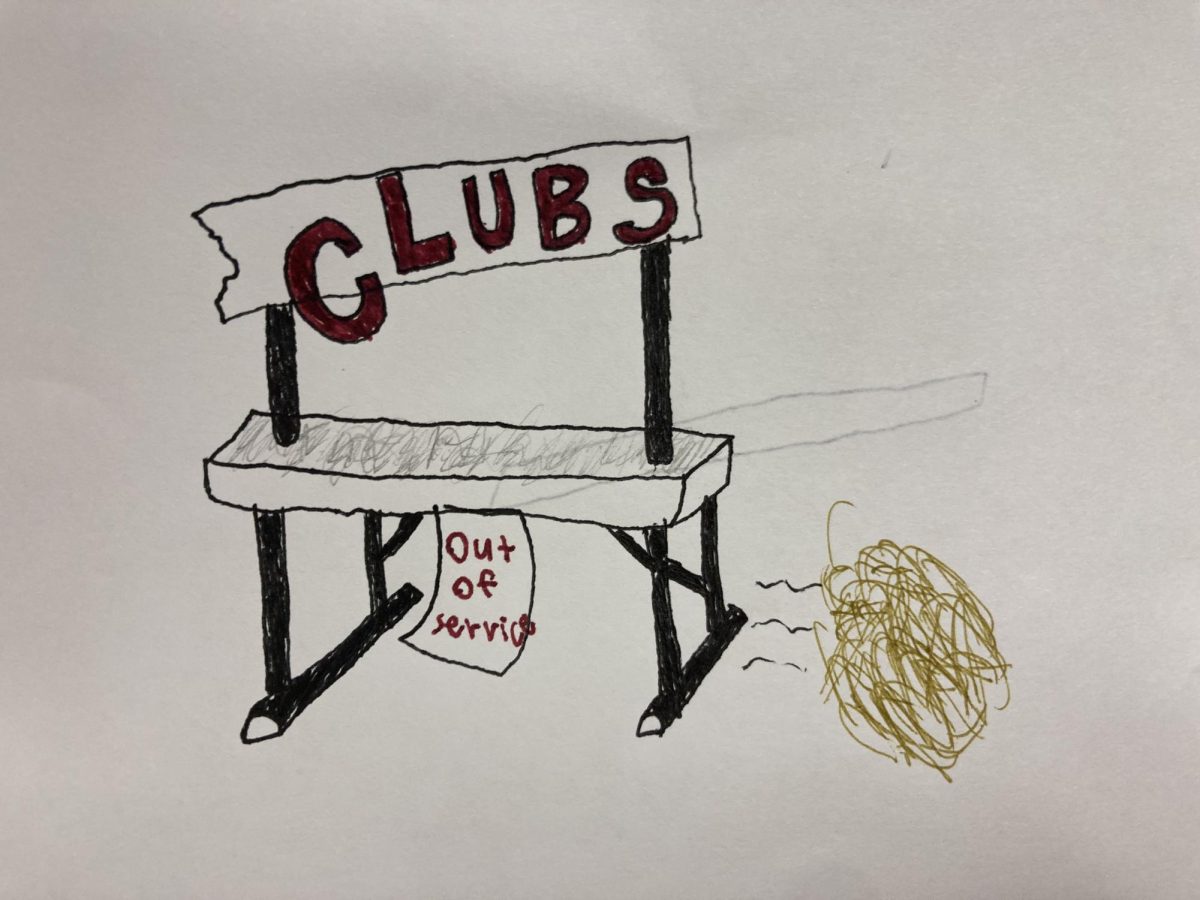What is the purpose of student clubs? If you ask us, it is to provide students with a fun, productive and low-stakes environment to socialize and share their interests. We also believe student clubs should, as is implied by the name, be under the management of students.
So we at The Courier wonder why Dallas College has introduced policies that work directly against the purpose of clubs and the interests of students.
At the beginning of the Fall 2023 semester, the new policies were introduced. These policies, according to the people who created them, were introduced to streamline the orientation process for clubs.
Frankie Ward, student life director at Dallas College, said, “By adhering to these procedures, we will create an environment where our organizations can thrive, innovate and make a lasting impact.”
Some of the new policies include a requirement of six members, four student officers including a Student Government senator and one full-time staff or faculty adviser. Each officer position comes with responsibilities. For example, the SGA senator must attend student government meetings.
In addition to these position requirements, there is also a large amount of paperwork to be filled out before clubs can officially meet. Group rosters, officer signatures and account renewal forms are just a few of the lengthy forms that must be completed. A club cannot officially meet, nor are they even considered clubs by the college, until all of these requirements are met.
This seems like the opposite of what clubs should be. Enforcing rules that require people to jump through multiple hoops just to make a student club official defeats the purpose of clubs in the first place. It makes even joining a club an intimidating prospect, which directly opposes the inclusive environment community colleges are supposed to offer. These rules will slowly but surely eliminate student life at Brookhaven, something that can already be difficult to find for some students at a commuter school.
These policies only make things more difficult for everyone involved, from the students in the clubs to the Office of Student Life and Engagement employees who must wade through ridiculous amounts of paperwork. None of this is conducive to a productive environment.
Maybe these policies work for universities, but we are a community college. On average, students spend about one to two years here, meaning we do not have a consistent student population to meet these requirements. Students do not have the time to navigate endless forms and confusing guidelines.
“Requiring clubs to have officers before they can meet discourages new student clubs from forming and kills established clubs whose officers graduate or opt out when the new year begins,” Aaron Clark, an English professor at Brookhaven Campus, said. Clark was the adviser for the Creative Writing Club for over a decade. With the new policies in place, Clark was unable to meet the requirements and the club died.
Longstanding clubs are not the only thing endangered. Shanelle Tennyson, a Brookhaven student, told us at the beginning of the semester she was looking to create a Brookhaven gardening club. She enticed many students, staff and faculty with the idea. However, like Clark, Tennyson was overwhelmed by the strict guidelines and the gardening club was dead in the water before it had a chance. People such as Clark and Tennyson are who Dallas College should be supporting.
Even clubs that turned in paperwork on time have not had an easy path this semester. PRISM, the LGBTQ+ student club at Brookhaven, is stuck in an endless wait for approval of its paperwork. At week 15 of the 16-week semester, PRISM was still not approved to meet officially. Our editor-in-chief is the club president and can attest to the difficulties this semester has brought. The Book Club was in a similar position.
These policies make it extremely difficult for students to bond, make friends and meet people outside the classroom.
“The new policies, in effect, banned our club meeting until we elected people to office who had never even attended, and could never attend, a club meeting before running for office for that club they know nothing about,” Clark said.
We are not trying to place the blame on any individuals or offices. It is our belief the policies were created with good intentions. The statements by individuals in the Office of Student Life at the beginning of this semester suggest this. Ward said, “We will be introducing new RSO procedures to ensure that our organization operates smoothly and effectively.” We do not doubt this statement.
We simply wish to highlight the detrimental effect these policies have had on everyone. Clark said, “These policies killed us.” The problem is not intent. It is a lack of planning and consideration for those involved, specifically the students of Dallas College.











